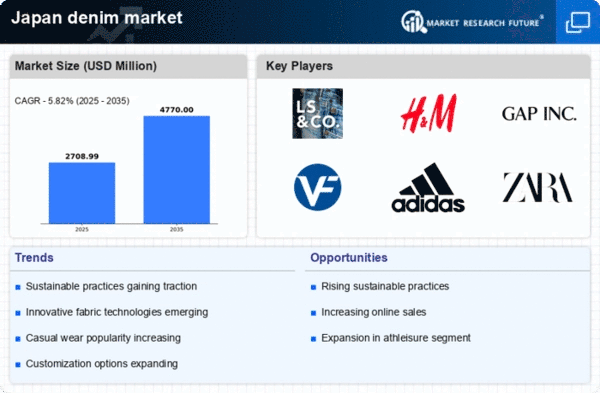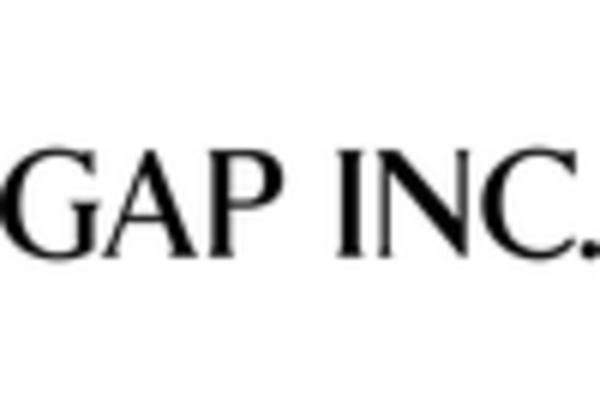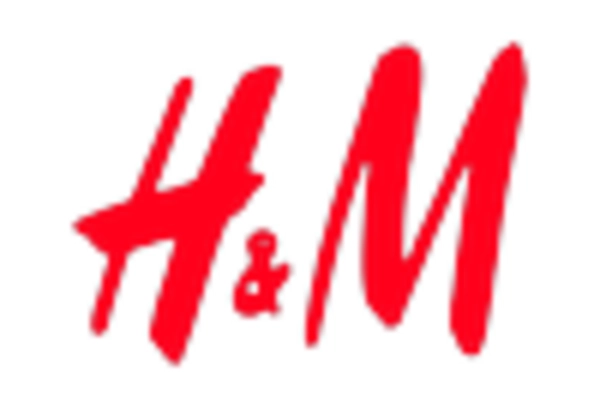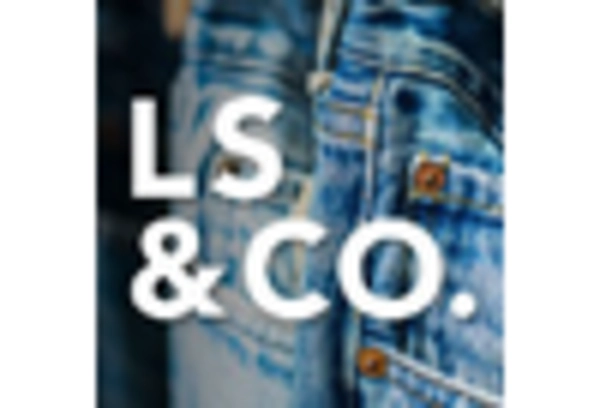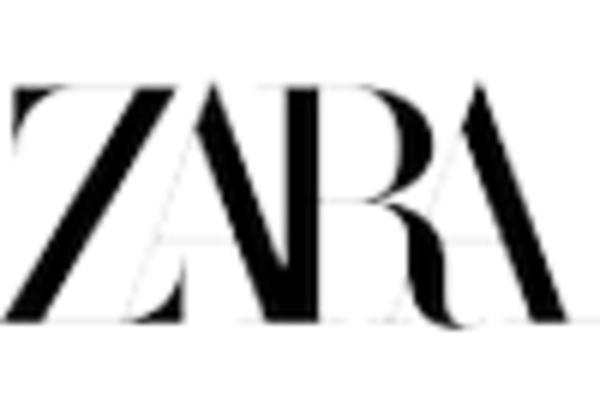Cultural Shifts Towards Casual Wear
Cultural shifts in Japan are contributing to the evolving landscape of the denim market. The increasing acceptance of casual wear in various settings, including workplaces and social gatherings, is driving demand for versatile denim products. As of 2025, it is anticipated that casual denim styles will represent a significant portion of the market, with an estimated growth rate of 20% annually. This trend reflects a broader societal change towards comfort and practicality in fashion choices. Brands that successfully cater to this demand by offering stylish yet comfortable denim options are likely to thrive in the competitive denim market. This cultural evolution not only influences consumer purchasing behavior but also shapes the overall direction of the industry.
Rising Demand for Eco-Friendly Products
The denim market in Japan is experiencing a notable shift towards eco-friendly products. Consumers are increasingly prioritizing sustainability, leading to a surge in demand for denim made from organic cotton and recycled materials. This trend is reflected in the market, where eco-conscious brands are gaining traction. In 2025, it is estimated that the eco-friendly denim segment could account for approximately 30% of total sales in the denim market. This shift not only aligns with consumer preferences but also encourages manufacturers to adopt sustainable practices, thereby enhancing their brand image. As a result, the denim market is likely to see a rise in innovative production techniques that minimize environmental impact, further driving growth in this segment.
Growth of E-Commerce and Online Retailing
The expansion of e-commerce is transforming the denim market in Japan. With the increasing penetration of the internet and mobile devices, consumers are increasingly turning to online platforms for their shopping needs. In 2025, it is projected that online sales could account for over 25% of total denim sales in Japan. This shift presents both opportunities and challenges for traditional retailers, who must adapt to the changing landscape. E-commerce allows for a broader reach and the ability to offer personalized shopping experiences, which are becoming essential in the denim market. As brands invest in their online presence, the competition is likely to intensify, pushing them to innovate in their marketing and distribution strategies.
Technological Advancements in Fabric Production
Technological innovations are playing a crucial role in shaping the denim market in Japan. Advanced manufacturing techniques, such as laser technology and 3D weaving, are enhancing the quality and durability of denim products. These advancements allow for the creation of unique textures and finishes, appealing to a broader consumer base. Furthermore, the integration of smart textiles into denim is gaining attention, with features such as moisture-wicking and temperature regulation. As of 2025, it is projected that the adoption of these technologies could increase the overall market value of the denim market by approximately 15%. This technological evolution not only meets consumer demands for high-performance apparel but also positions brands as leaders in innovation.
Influence of Fashion Trends and Celebrity Endorsements
Fashion trends and celebrity endorsements significantly impact the denim market in Japan. The rise of social media platforms has amplified the influence of fashion icons, leading to rapid shifts in consumer preferences. Denim styles, such as high-waisted jeans and distressed finishes, are often popularized by celebrities, driving sales in the market. In 2025, it is estimated that approximately 40% of consumers in Japan are influenced by celebrity fashion choices when purchasing denim products. This trend underscores the importance of marketing strategies that leverage celebrity partnerships to enhance brand visibility and appeal. Consequently, brands that effectively engage with influencers are likely to see increased market share in the competitive denim market.


